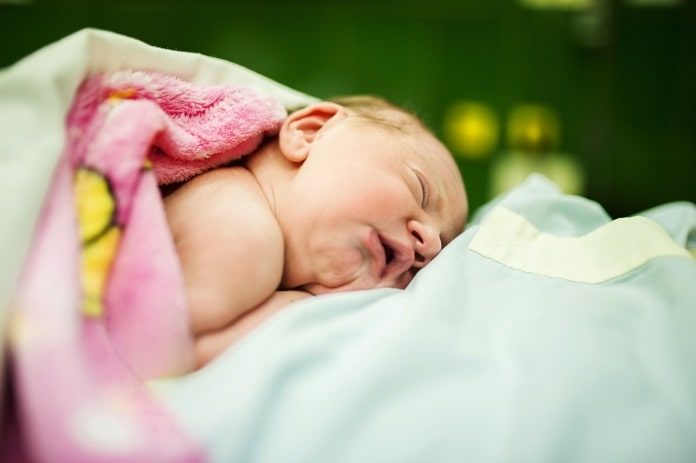A study published in Nature Communications examines whether the mode of pregnancy delivery affects the gut microbiome development of babies.
The natural birth process can be messy, stressful, and long remembered by both moms and dads. However, there is an unexplained link between decreasing rates of vaginal delivery and increasing rates of chronic inflammatory and metabolic disease in children growing up in today’s world.
Nowadays, 20% of Cesarean sections performed worldwide have no medical justification. Although often preferred by both patients and obstetricians, Cesarean sections are not risk-free and might have a hidden impact on the baby immune system.
During the natural birth process, the baby is exposed to microorganisms from the mother. This normal exposure process has been connected to healthy gut microbiome growth, further affecting baby immune system development. Nevertheless, it is unclear whether disruption of the exposure process occurring during cesarean section affects gut microbiome formation in neonates.
A recent study published in Nature Communications determined whether the mode of delivery does affect the baby immune system. The researchers examined stool samples taken one to five days after the birth of 33 babies born by either vaginal or cesarean deliveries. They performed an analysis of the genetic material from uncultured microorganisms found in these samples. This method allows the detection of numerous bacterial strains and the evaluation of any differences in bacterial classification among samples.
Differences in microbiomes among babies born naturally or by C-section
The study found differences in the microbiome of babies born naturally or by a Cesarean section. Stool samples of babies delivered by Cesarean section lacked the bacteria present in samples taken from naturally born babies. In addition, the researchers extracted an immune stimulating factor called lipopolysaccharide (LPS) from the samples. This bacteria-derived substance is known to cause chronic inflammatory disease and metabolic disease in children and adults.
They used extracted LPS to stimulate cultured immune cells and quantifies the expression of several inflammation-causing factors. Interestingly, the study discovered that LPS isolated from stool samples of naturally born babies stimulates higher levels of inflammation-related substances secretion. On the other hand, LPS isolated from stool samples of babies delivered by Cesarean section had lower inflammatory effects.
C-sections may divert the process of gut microbiome development
The results of this study are of great importance to our understanding of the factors involved in baby immune system development. The results suggest that Cesarean section procedures divert the process of gut microbiome development to alternative pathways. This alteration might underlie the increase in the prevalence of chronic inflammatory and metabolic diseases in developed countries.
While further research is required to shed light on the molecular mechanisms responsible for these differences, it seems that the mode of delivery might have lifelong influences on a newborn’s health.
Written by Marina Chemerovski-Glikman, PhD
Reference: Wampach L, Heintz-Buschart A, Fritz JV, Ramiro-Garcia J, Habier J,Herold M, Narayanasamy M, Kaysen A, Hogan AH, BindlL, Bottu J,Halder R, Sjöqvist C, May P, Andersson AF, Beaufort C,Wilmes P. Birth mode is associated with earlieststrain-conferred gut microbiome functionsand immunostimulatory potential. Nat Comm, 2018



